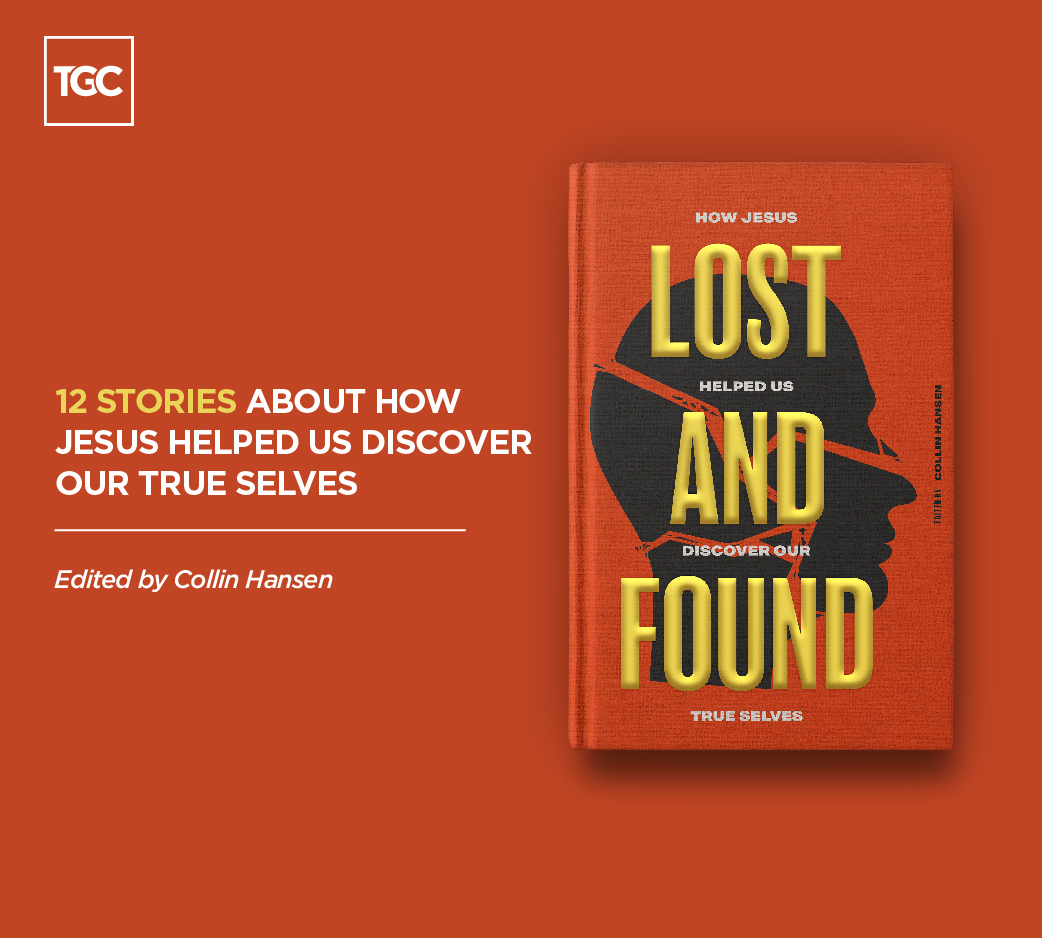For as long as I can remember, I was into sports. Whether racking up swimming medals, slamming a tennis ball with my wicked backhand, or being voted “best athlete” in my senior class, I had found my niche, my life. I was an athlete, and it defined everything about me, even the major I planned on declaring in college.
But athleticism can push a person too far. Only a month after high-school graduation, I broke my neck while attempting an inward pike dive off a raft in the shallows of the Chesapeake Bay. I had assumed I could pull out of the pike in time, but when my head crunched against the sandy bottom, my arms and legs went limp. When they pulled my paralyzed body on shore, I kept thinking, What a stupid dive; why did I do it? Months later, when the permanency of my paralysis began to sink in, I felt my life was over.
I was a Christian back then, but life in Christ didn’t define who I was. True, I understood I was a new creation with a new heart, at least in theory, but I didn’t live like it. So, after my accident, I dug into my Bible for help, hoping that Jesus would give me back all that I’d lost. I wanted—I needed—my body back.
Searching for Healing
I scoured God’s Word for any reference of Jesus healing paralyzed people. One passage caught my attention: Luke 5.
Some men came carrying a paralyzed man on a mat and tried to take him into the house to lay him before Jesus. When they could not find a way to do this because of the crowd, they went up on the roof and lowered him on his mat through the tiles into the middle of the crowd, right in front of Jesus. . . . So, he said to the paralyzed man, “I tell you, get up, take your mat and go home.” Immediately he stood up in front of them, took what he had been lying on and went home praising God.
That’s all I read. I ignored the verses within the ellipsis (vv. 20–24) in which Jesus teaches that forgiving sin is a lot harder to do than healing someone. I didn’t care about that teaching. Forget the sin part; I just wanted the healing part. As far as I was concerned, if I kept my nose clean and stayed out of trouble, Jesus would have no reason not to heal me.
And so, I made the rounds at local healing services, following every scriptural injunction that might qualify me for physical healing. Elders prayed and anointed me with oil, and I confessed more sins than I could recall. But after two visits to Kathryn Kuhlman’s healing crusades (the Benny Hinn of her day), I plummeted into despair. My arms and legs remained unresponsive. Didn’t God know I was lost without limbs that worked? Didn’t he understand I was a strong athlete on the inside? Surely he knew I was the least likely candidate to enjoy life in a wheelchair.
For the last 50 years in my wheelchair, I’ve been daily dying to self and rising with Jesus, dying to self and rising with Jesus, dying to self and rising with Jesus.
After the third healing crusade, my sister drove me home to our Maryland farm. All the way, I kept fuming, What kind of Savior, what kind of rescuer or healer, would refuse the prayer of a paralytic? Especially a paralytic who claims Christ as her Savior? I felt bewildered and utterly lost. One morning I awoke early, looked around my shadowy bedroom, and decided I didn’t want to get up. If I can’t be healed, I thought, then I’m just not going to do this. . . . I am not going to live this way! I stayed in bed that day. And the next. And the following week.
The despair was claustrophobic, and I finally whimpered, “I can’t live this way. I’m so lost. God, show me how to live.” It was my first plea for help. Next came fresh days when my sister would get me up, plop a Bible on a music stand, and park my wheelchair in front of it. With a mouth stick, I would flip this way and that, trying to make sense of it all.
Finding a Deeper Healing
I learned that the core of Christ’s plan is to rescue us from sin. Our physical aches and pains and broken relationships aren’t his ultimate focus—he cares deeply about these things, but they’re symptoms of the chief problem in this fallen world. God’s goal is not to make us comfortable. He wants to teach us to hate our transgressions as he grows our love for him.
I reread Luke 5 where Jesus healed the paralyzed man lowered by his friends through the roof. This time, I studied the verses I had ignored:
When Jesus saw their faith, he said, “Friend, your sins are forgiven.” The Pharisees and the teachers of the law began thinking to themselves, Who is this fellow who speaks blasphemy? Who can forgive sins but God alone? Jesus knew what they were thinking and asked, “Why are you thinking these things in your hearts? Which is easier: to say, ‘Your sins are forgiven,’ or to say, ‘Get up and walk?’ But I want you to know that the Son of Man has authority on earth to forgive sins.” So, he said to the paralyzed man, “I tell you, get up, take your mat and go home.” (Luke 5:20–24)
Jesus could heal the paralyzed man because—and only because—he had authority as the Son of God to forgive sin. It was the point he wanted to make with the Pharisees. For him, healing withered legs would take no more effort than setting stars and moons in motion; for Jesus, it’s all merely finger-work (Ps. 8:6). But when it comes to forgiving sin, it was no easy effort for our Savior. Our redemption required blood and a strong arm of salvation (Isa. 63:5).
God’s goal is not to make us comfortable. He wants to teach us to hate our transgressions as he grows our love for him.
I collapsed in tears when I began to glimpse how heinous my sin was. Physical healing paled in comparison to the unthinkable abuse my transgressions heaped on my Lord.
So, for the last 50 years in my wheelchair, I’ve been daily dying to self and rising with Jesus, dying to self and rising with Jesus, dying to self and rising with Jesus. My goal is to mortify my fleshly desires, so I might find myself in Christ. God has been answering my prayer, exposing dark things in my heart, things from which I need to be healed.
Does God miraculously heal? Sure, he does. But in this broken world, it’s still the exception, not the rule. A “no” answer to my request for a miraculous physical healing has meant purged sin, a love for the lost, increased compassion, stretched hope, an appetite for grace, an increase of faith, a happy longing for heaven, a desire to serve, a delight in prayer, and a hunger for his Word. Oh, bless the stern schoolmaster that is my wheelchair!
It’s all to the praise of deeper healing in Christ.
This is an adapted excerpt from Lost and Found: How Jesus Helped Us Discover Our True Selves (The Gospel Coalition, 2019), edited by Collin Hansen.
“The Most Practical and Engaging Book on Christian Living Apart from the Bible”
 “If you’re going to read just one book on Christian living and how the gospel can be applied in your life, let this be your book.”—Elisa dos Santos, Amazon reviewer.
“If you’re going to read just one book on Christian living and how the gospel can be applied in your life, let this be your book.”—Elisa dos Santos, Amazon reviewer.
In this book, seasoned church planter Jeff Vanderstelt argues that you need to become “gospel fluent”—to think about your life through the truth of the gospel and rehearse it to yourself and others.
We’re delighted to offer the Gospel Fluency: Speaking the Truths of Jesus into the Everyday Stuff of Life ebook (Crossway) to you for FREE today. Click this link to get instant access to a resource that will help you apply the gospel more confidently to every area of your life.


































